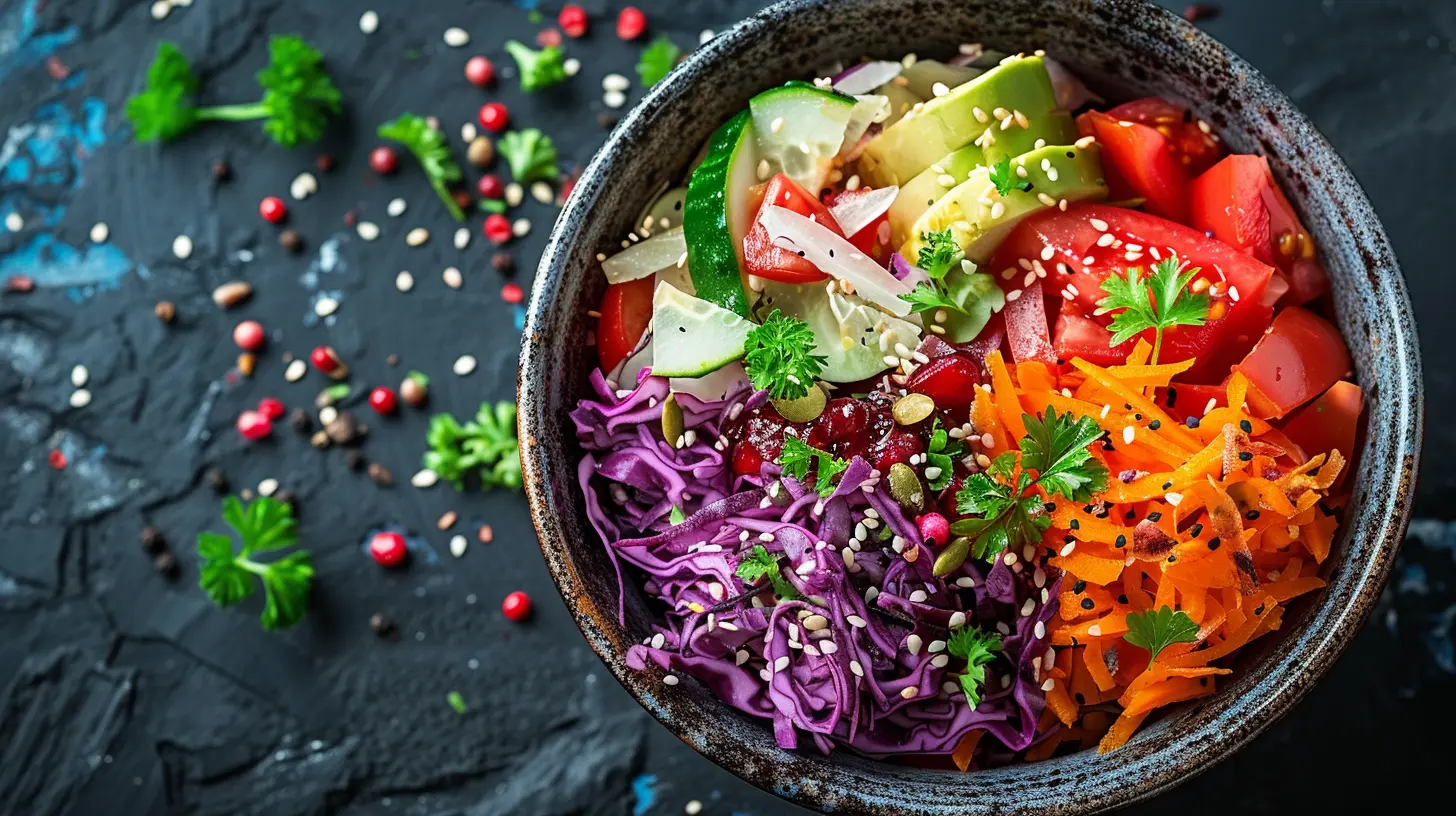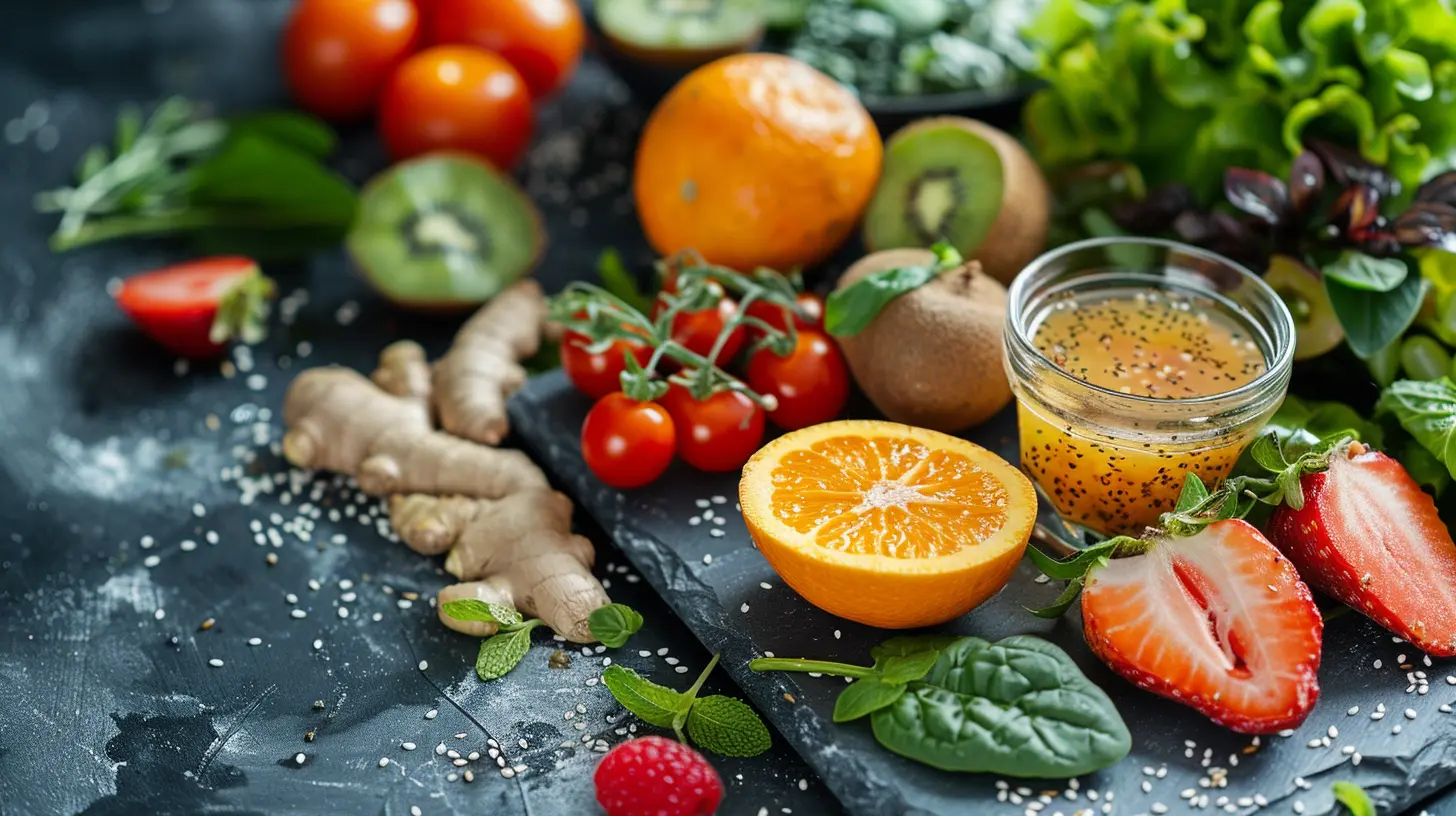Exploring the Benefits of Fermented Foods for Gut Health
22 July 2025
A Love Letter to Your Gut
Your gut—often overlooked, sometimes undervalued—works tirelessly behind the scenes, digesting, absorbing, and keeping things moving. But did you know that a happy gut is the foundation of a healthy body? Yep, your digestive system is more than just a food processing plant; it's a bustling metropolis of microbes shaping your health, mood, and immunity.
And guess what? The secret to a thriving gut isn’t locked in some high-tech lab or hidden in an expensive supplement. It lies in something ancient, natural, and oh-so-delicious—fermented foods.
So, let’s dive into this tangy, probiotic-packed world and uncover why your gut needs fermented foods like a plant needs sunlight. 
What Are Fermented Foods?
Before we get lost in the magic of fermentation, let’s break it down.Fermentation is nature’s way of preserving food while elevating its health benefits. It’s been around for thousands of years, long before refrigeration came along. During fermentation, bacteria and yeast feast on natural sugars and starches, producing beneficial compounds like probiotics, organic acids, and vitamins.
Think of it as a flavorful transformation—plain old cabbage becomes crunchy, probiotic-packed sauerkraut. Milk turns into creamy, gut-loving yogurt. Soybeans become rich, savory miso. It’s science and art, creating nutrient-dense foods that your digestive system adores. 
The Gut-Microbiome Connection
Before we talk about how fermented foods support gut health, let’s understand one key player—your gut microbiome.This microbiome is home to trillions (yes, trillions!) of bacteria, both good and bad. When the good guys outweigh the bad, your gut thrives, digestion flows smoothly, and your immune system hums like a well-tuned engine. But when the bad bacteria take over? Cue bloating, sluggish digestion, weakened immunity, and even mood swings.
Fermented foods act like reinforcements, bringing in friendly bacteria (probiotics) that help balance the microbiome, crowd out harmful bacteria, and keep gut health in check.
1. Fermented Foods Improve Digestion
Ever feel bloated or sluggish after a heavy meal? That’s your gut waving a white flag.Fermented foods contain natural enzymes and probiotics that aid digestion, break down food more efficiently, and reduce digestive discomfort. They support the breakdown of lactose (hello, dairy lovers!), fiber, and proteins, making it easier for your body to absorb nutrients without the dreaded bloating.
Best fermented foods for digestion:
- Yogurt (rich in lactobacillus, great for lactose digestion)
- Kimchi (spicy, tangy, and full of enzymes)
- Sauerkraut (classic gut-friendly powerhouse)
2. Say Goodbye to Bloat and Constipation
A sluggish gut often leads to bloating, irregularity, and constant discomfort. The probiotics in fermented foods stimulate regular bowel movements and improve stool consistency.By maintaining a balanced microbiome, fermented foods reduce inflammation in the gut, prevent constipation, and keep things moving smoothly (pun intended).
Try these for gut regularity:
- Kefir (a probiotic-rich, drinkable yogurt)
- Tempeh (fermented soy packed with fiber)
- Miso (a comforting, gut-friendly soup base)
3. Strengthen Your Immune System
Did you know that over 70% of your immune system lives in your gut? A weak gut means a weak immune defense, making you vulnerable to infections, colds, and fatigue.Fermented foods enhance gut immunity, helping your body fight off pathogens and harmful microbes before they cause trouble. When your microbiome is balanced, your immune system operates at its peak, keeping you healthier year-round.
Top immunity-boosting fermented foods:
- Kombucha (fermented tea loaded with antioxidants)
- Kvass (a traditional Eastern European fermented drink)
- Natto (fermented soybeans, rich in vitamin K2)
4. Fermentation Fuels Nutrient Absorption
Eating healthy is one thing, but absorbing nutrients is another. If your gut isn’t functioning properly, all those vitamins and minerals from your diet might be passing right through you—literally.Fermentation breaks down anti-nutrients, making it easier for your body to absorb essential vitamins and minerals like B vitamins, magnesium, and zinc. Plus, some fermented foods actually increase nutrient levels, transforming ordinary ingredients into nutritional powerhouses.
For better nutrient absorption, try:
- Pickles (fermented in brine, not vinegar!)
- Lassi (Indian probiotic yogurt drink)
- Fermented vegetables (carrots, beets, radishes, you name it!)
5. A Happier Gut = A Happier Mind
Ever heard of the gut-brain connection? Your gut and brain are in constant communication through the vagus nerve, meaning what happens in your gut affects your mood, stress levels, and even mental clarity.Fermented foods positively impact mental health by reducing inflammation, balancing neurotransmitters like serotonin (the happy hormone), and lowering stress levels. So, if you’ve been feeling down or anxious, nourishing your gut with probiotics could be a game-changer.
Mood-boosting fermented foods:
- Yogurt with live cultures
- Kimchi (rich in gut-friendly bacteria)
- Fermented cacao (yes, chocolate can be good for your gut!) 
How to Add Fermented Foods to Your Diet
Now that you know why fermented foods are amazing, let’s talk about how to make them a regular part of your diet.Start Slow
If you’re new to fermented foods, ease into it. Too much too soon can lead to temporary bloating as your gut microbiome adjusts. Start small—maybe a spoonful of sauerkraut with lunch or a cup of kefir in the morning.Choose Quality Over Quantity
Not all fermented foods are created equal. Look for raw, unpasteurized, and naturally fermented options with live probiotics. Many supermarket pickles and yogurts are pasteurized, wiping out beneficial bacteria. Check labels for “live cultures” or “fermented naturally.”Pair Them with Whole Foods
Fermented foods work best when paired with a balanced diet rich in fiber, healthy fats, and protein. A bowl of miso soup, a side of kimchi with your rice, or kefir blended into a smoothie? Perfect pairings!Make Your Own
Feeling adventurous? DIY fermentation is easier than you think! Homemade sauerkraut, kimchi, or kombucha are simple to make and bursting with live probiotics. Plus, they taste amazing.
The Bottom Line
Your gut is your body’s command center, influencing everything from digestion to immunity to mental health. And fermented foods? They’re the ultimate gut-nourishing superstars, restoring balance, boosting digestion, and keeping you thriving from the inside out.So, the next time you reach for a snack, consider feeding not just your taste buds but your gut bacteria too. A little kimchi here, a sip of kombucha there—small changes can lead to a world of difference.
Because when your gut is happy, you are happy. And isn’t that the goal?
all images in this post were generated using AI tools
Category:
NutritionAuthor:

Jackson Mahoney
Discussion
rate this article
1 comments
Adria McHugh
Embrace fermentation for vibrant health.
August 5, 2025 at 2:25 AM

Jackson Mahoney
Absolutely! Fermentation enhances nutrient absorption and boosts gut health, making it a powerhouse for overall wellness.


